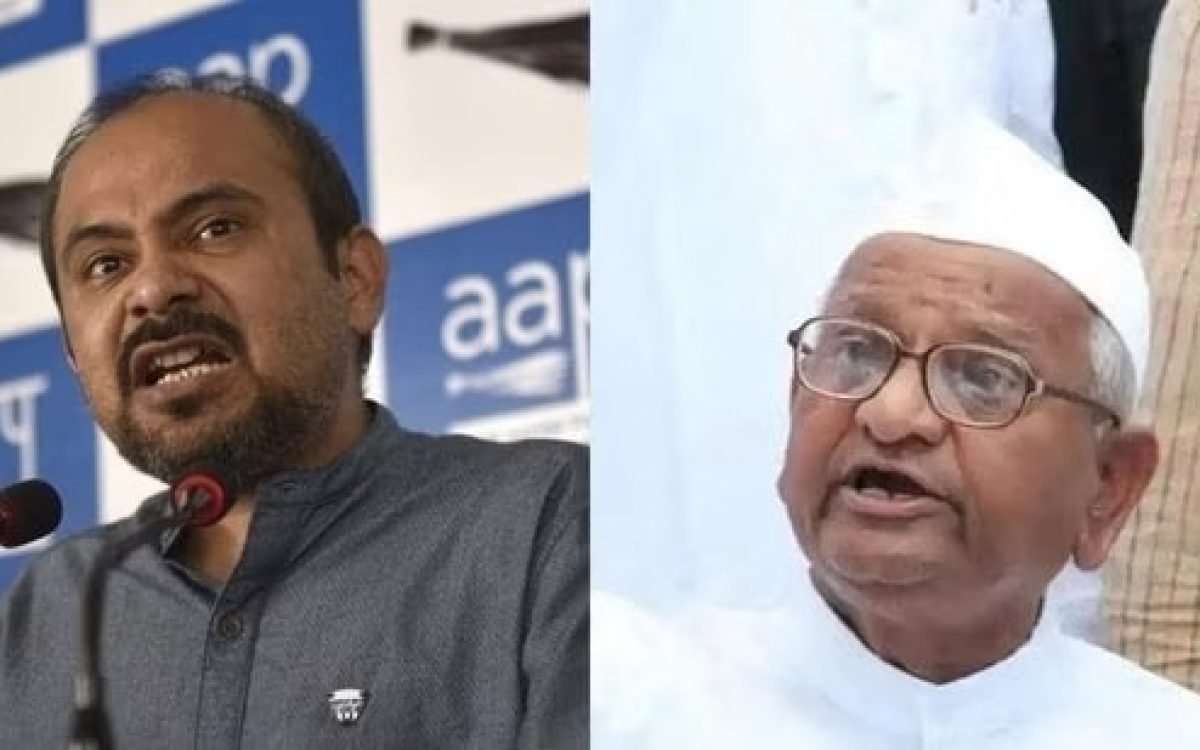In the wake of social activist Anna Hazare’s remarks regarding the arrest of Delhi Chief Minister Arvind Kejriwal by the Enforcement Directorate (ED), the Aam Aadmi Party (AAP) has offered a rebuttal, sparking a discourse on the intricacies of Indian politics and governance. Let’s delve deeper into the unfolding events and dissect the underlying dynamics at play.
Anna Hazare’s Critique:
Anna Hazare, renowned for his anti-corruption activism, didn’t hold back when commenting on Kejriwal’s arrest, attributing it to Kejriwal’s own actions. Hazare expressed disappointment over Kejriwal’s involvement in formulating the excise policy, particularly regarding liquor, despite their shared history of activism against alcohol consumption. His remarks underscore the disillusionment with Kejriwal’s perceived deviation from their shared principles and values.
AAP’s Rebuttal:
In response to Hazare’s critique, AAP leader Dilip Pandey expressed dismay and highlighted what he perceived as a double standard in Hazare’s silence over similar actions by leaders aligned with other political parties. Pandey pointed out instances where individuals accused of corruption or malpractice found refuge in other political camps without facing the same level of scrutiny or criticism.
Reflections on Indian Politics:
This exchange sheds light on the complexities and contradictions within Indian politics. While activists like Hazare continue to hold leaders accountable for their actions, political parties like AAP navigate the intricacies of power dynamics and public perception. The incident raises questions about political integrity, accountability, and the role of activism in shaping governance.
Arvind Kejriwal’s Journey:
Kejriwal’s journey from anti-corruption activist to chief minister and now an arrested politician encapsulates the turbulent landscape of Indian politics. His trajectory reflects the challenges of maintaining ideological purity while engaging in the pragmatic realities of governance.
Conclusion:
As the saga unfolds, it serves as a reminder of the ongoing struggle for transparency, accountability, and ethical governance in India’s political landscape. The interaction between activists, political parties, and law enforcement agencies underscores the need for constant vigilance and engagement from all stakeholders to uphold democratic principles and the public interest.









